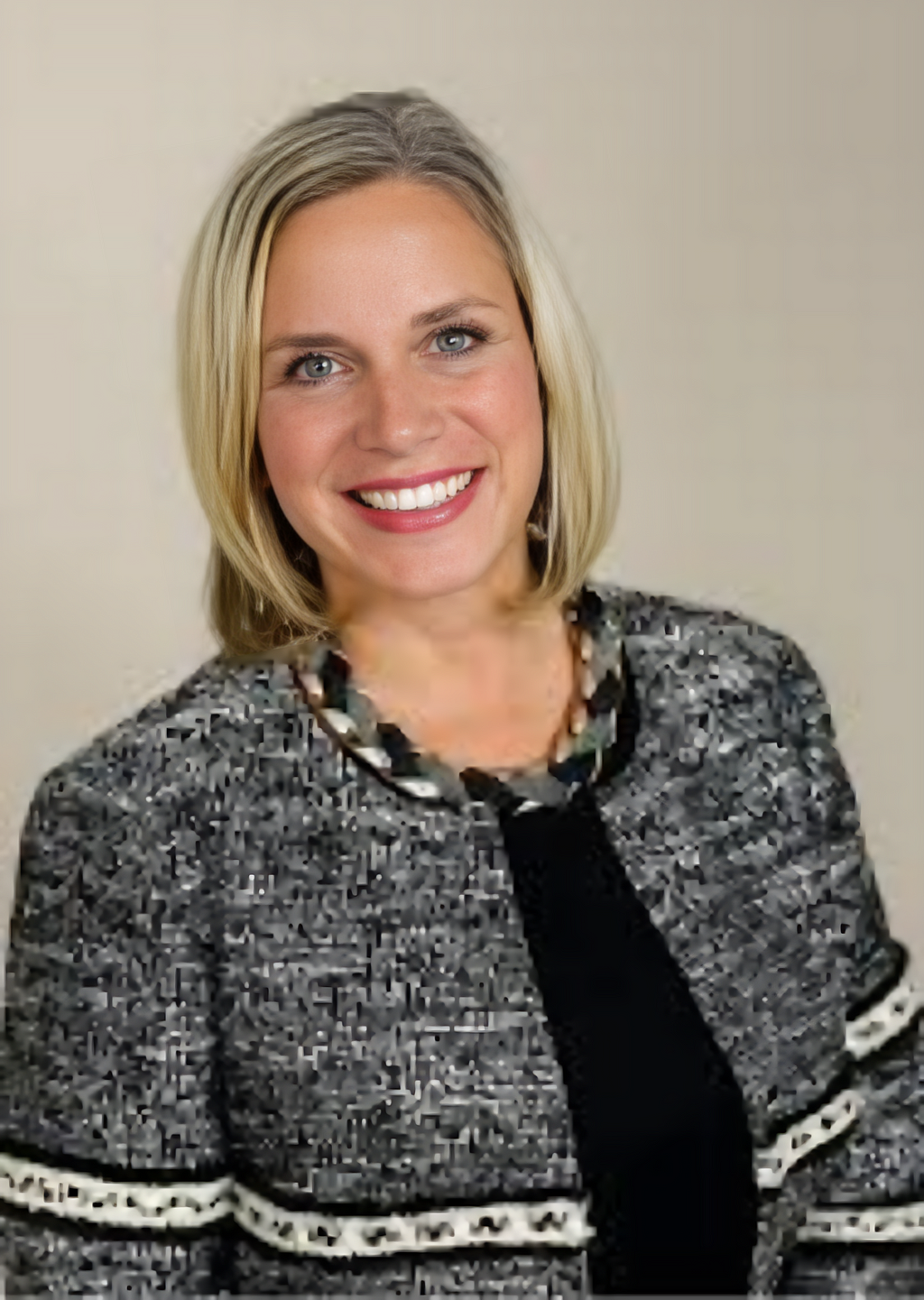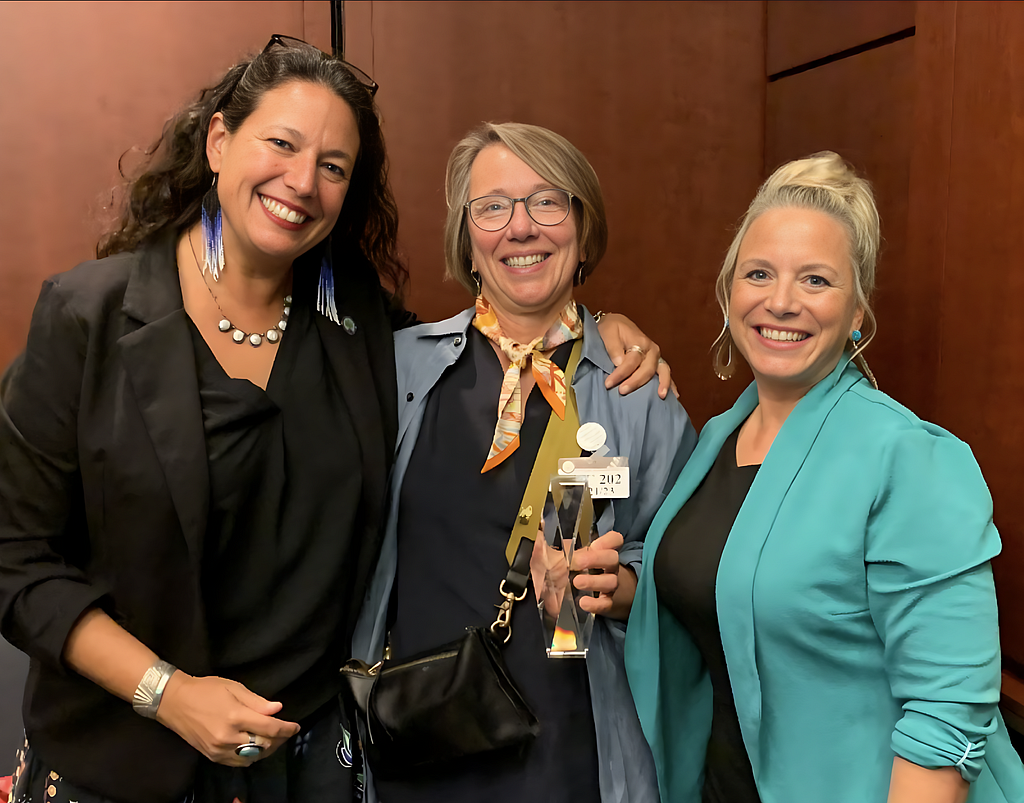
“If you want to change the world, go home and love your family.”- so many of life’s issues revolve around issues that begin at home. We need to love more deeply, train up our children in the way that they need to go in life, and model the best behavior in our home lives.
As a part of our interview series about the things that should be done to improve the US educational system, I had the pleasure to interview Sharon Bonney.
Sharon Bonney leads the Coalition on Adult Basic Education (COABE), the largest adult education association in the world. She has led the development of multiple award-winning initiatives that have helped galvanize and transform the field of adult education where she has served for nearly 25 years. Her portfolio of initiatives include leadership development, professional development, advocacy and communication campaigns that continue to build and amplify success at the local, state, and national levels.
Thank you so much for doing this with us! Our readers would love to “get to know you” a bit better. Can you share the “backstory” behind what brought you to this particular career path?
Like many others that are in the field of adult education, I sort of “fell” into it nearly 25 years ago. I got my start at a national organization known at the time as Laubach Literacy International. It was started by a Christian missionary whose motto was “each one teach one and win one to Christ.” Laubach was a wonderful place to work, and I became a tutor for adult learners while working there some 24+ years ago. Little did I know that working there would launch me into my decades long career in the field of adult education.
Can you share the most interesting story that happened to you since you started your career? Can you tell us what lesson you learned from that?
One of the most interesting experiences I have had is meeting a graduate of an adult education program, named Kimberly Lee. We met in 2017 during the first Advocacy April trip COABE organized to bring learners and leaders to the Capitol to talk with legislators about the value of adult education. Kimberly left such a profound impact on me because of the childhood trauma she overcame which had truly impaired her life and created a massive barrier to her obtaining her high school education. From dropping out of school, to enduring homelessness, to learning about an adult ed program that helped her (as well as her children who received wrap around services while she received literacy services), to going on to get her teaching degree and more! She epitomizes the overcoming spirit of our adult learners! Kimberly and I became friends, and I followed her life on social media as she bought her first car and then her first house. I celebrated with her as her children got on the honor roll and won various awards. I saw the transformative power of adult education in her life and the lives of her children! While this story is unique to Kimberly, I know that this transformative power of adult education is not unique. We are helping many learners get better jobs, get into community college, help their children with their homework, and help the adults in their efforts as contributing members of society. As a side note, since Kimberly and I talked in 2017, she has been profiled on our six-time award winning “Educate and Elevate” national public awareness campaign, and COABE has begun a longitudinal study of graduates of adult education programs. Our aim is to quantify the value of these services in the lives of learners, their families, their communities, and our economy.
Are you working on any exciting new projects now? How do you think that will help people?
It’s hard to pick which exciting new project to share with the audience! COABE is a proud disseminator of 500 Google Scholarships which will help adult learners to obtain workforce certificates in high need, well-paying industries such as IT, project management, and AI. We also continue to work with IBM SkillsBuild as a partner for 11,000 badges and credentials and have an adult education channel that helps learners and their teachers access information and career pathways, and of course, we continue to serve as a talent pipeline for Amazon, the world’s largest employer. COABE is also leading the adult education field for the Center of Excellence in Apprenticeships which is funded through the Department of Labor. Our goal for these projects is to help adult learners improve their readiness to enter the workforce so they can make a family sustaining wage.
One other newer initiative we are engaging on is the “Impacts that Counts” campaign which helps local programs share about the wonderful success of their program. Local adult education programs are on the front lines, serving millions of learners nationwide. They provide numeracy, literacy, high school diploma, digital literacy, and more! We have partnered with the National Association of the State Directors of Adult Education to showcase the success and share data that makes the case for the value of their work.
Can you briefly share with our readers why you are an authority in the education field?
I have had the pleasure of working in the field of adult education for nearly 25 years now, and have seen our organization, the Coalition on Adult Basic Education (COABE) grow from just over 1,300 members to more than 40,000 active members across the country during my tenure. We have worked together with our members to secure hundreds of millions of dollars of much needed funding at the state and national level through award winning initiatives, fellowships, and sustained advocacy efforts. We did this because on average, our programs receive $500-$800 per pupil per year for adults with the greatest barriers to employment and learning compared to $10,000 per pupil per year in elementary education. Additionally, COABE holds a national state of the art conference for thousands of adult educators every year. As the largest national adult education focused association, we provide leadership, professional development, advocacy, and communication for the field.
Ok, thank you for that. Let’s now jump to the main focus of our interview. From your point of view, how would you rate the results of the US education system?
The US education could be one of the best in the world. Elementary education is funded at $10,000 per pupil per year. Learners have access to tools and resources that enhance learning that I could only dream about while I was growing up.

Can you identify 5 areas of the US education system that are going really great?
Within the adult education system in the US, here are some areas that are going well.
- Recent incremental increases in much needed funding since COABE launched the Educate and Elevate campaign have helped our field hire teachers and career navigators which has been very beneficial to learners.
- The targeted focus on Integrated Education Training (IET) has provided learners with accelerated opportunities for education and employment.
- The Workforce Innovation and Opportunity Act (known as WIOA) focus on breaking down silos so that the system is student centric has been very beneficial.
- The US Department of Education, and most notably the Office of Career, Technical, and Adult Education (OCTAE) has a wonderful leader, Assistant Secretary Dr. Amy Loyd — she has already helped move the field forward in many areas since her congressional appointment to her position a year ago. Streamlining the process between adult education and community colleges as well as adult education and local employers has also been very beneficial for the field.
- Finally, the wonderful new products, services, and curriculum offered by niche vendors that know and understand the field so well has been incredibly beneficial as so many learners had to work online during the pandemic. Online resources and curriculum were critical and vital to the success of the local programs and the learners they were and are serving!
Can you identify the 5 key areas of the US education system that should be prioritized for improvement? Can you explain why those are so critical?
- Increased wages for adult educators so they do not have to work multiple part time jobs without benefits. Right now, teachers and administrators in our field take, on average, a 20% pay cut to work in adult education.
- Ability to benefit (ATB) is a federally funded program that has the potential to increase enrollment at community colleges and to help learners access the funding they need to attend; however, it is terribly underutilized and often a barrier for learners to go on to higher education. I would love to see a renewed focus on explaining and streamlining the process so that presidents, chancellors, provosts, and registrars understand the value of ATB for their college and university.
- Update the National Reporting System (NRS) so that it more accurately captures the wonderful work of the local programs and the success of the learners. Currently the NRS does not accurately capture all the learners that are served, nor does it capture all of the potential measurable skills gains learners are making.
- Invest in greater resources and support for trauma informed learning and care as many of our learners enter adult ed programs with terrible trauma they are trying to overcome. For example, many of our adult learners have fled war torn, impoverished countries and have lawfully immigrated to the US seeking a better life for themselves and their families. Additionally, we serve the homeless, those that have aged out of foster care, single moms and dads, individuals that have exhausted TANF. Our learners are typically impoverished and in need of wrap around services and support so that they can move up and out of poverty into a family sustaining job.
- Wi-Fi and devices for all learners and programs as these are the covered populations and often there is a terrible digital divide at the moment. If you have only a cell phone, it is very hard to attend classes and work from just a cell phone, let alone to deal with poor Wi-Fi service which makes learning much longer and harder. Provide funding through the Digital Equity Act and BEAD Act directly to adult education programs.
How is the US doing with regard to engaging young people in STEM? Can you suggest three ways we can increase this engagement?
When it comes to adult learners, our local programs teach STEM for adult learners with a focus on helping them graduate to get a job or get into community college programs.
Can you articulate to our readers why it’s so important to engage girls and women in STEM subjects?
I would say that any time we can empower learners and engage them in STEM subjects, that is a win for them and the US!
If you had the power to influence or change the entire US educational infrastructure, what five things would you implement to improve and reform our education system? Can you please share a story or example for each?
If I could focus on one major area, it would be to destigmatize adult education. The teachers, administrators, case workers, and career navigators that work out of local programs that are serving adult learners are doing amazing work! The adult learners that are making time in their often hectic, busy lives do so not because they have to but because they want to. They understand that this noncompulsory education is going to help them change the trajectory of their lives. When they graduate with their high school diploma, achieve a workforce certificate, become computer proficient, or learn how to read and write English, we should all celebrate with them! More than 400,000 learners have graduated from adult ed programs in the last 5 years which has impacted economic success. Adult education has helped these individuals get off welfare and now they are contributing to the economy when they purchase cars, buy homes, and so much more!
Can you please give us your favorite “Life Lesson Quote”? Can you share how that was relevant to you in your life?
“If you want to change the world, go home and love your family.”- so many of life’s issues revolve around issues that begin at home. We need to love more deeply, train up our children in the way that they need to go in life, and model the best behavior in our home lives.
I also really like this quote: “Genius is 1% innovation and 99% hard work”. There is no easy ticket to success in life. Anything that is worth achieving takes hard work, dedication, and I would add, the blessing of the Lord.
We are blessed that some of the biggest names in Business, VC funding, Sports, and Entertainment read this column. Is there a person in the world, or in the US, with whom you would love to have a private breakfast or lunch, and why? He or she might just see this if we tag them 🙂
Tim and Demi Tebow. I have so much respect for the work they do globally and in the US! One of my personal passion projects is fighting human trafficking, so I would love to talk with them about this. As a side note, due to the border crisis, we are seeing some adult learners who have been trafficked come through our doors asking for help.
How can our readers further follow your work online?
I invite you to connect with me on LinkedIn https://www.linkedin.com/in/sharon-bonney-coabe/ and Twitter https://twitter.com/CeoCoabe. You can always find updates on our website at www.coabe.org.
Thank you so much for these insights! This was so inspiring!
Sharon Bonney of COABE: 5 Things That Should Be Done To Improve The US Educational System was originally published in Authority Magazine on Medium, where people are continuing the conversation by highlighting and responding to this story.
